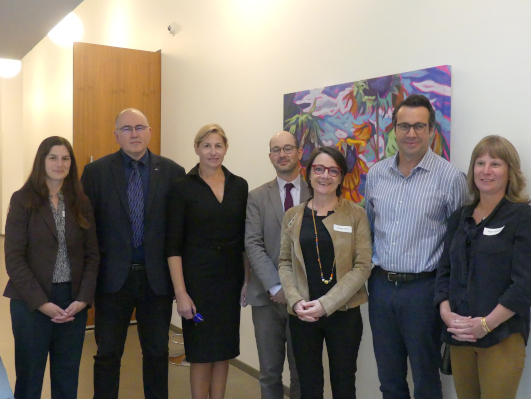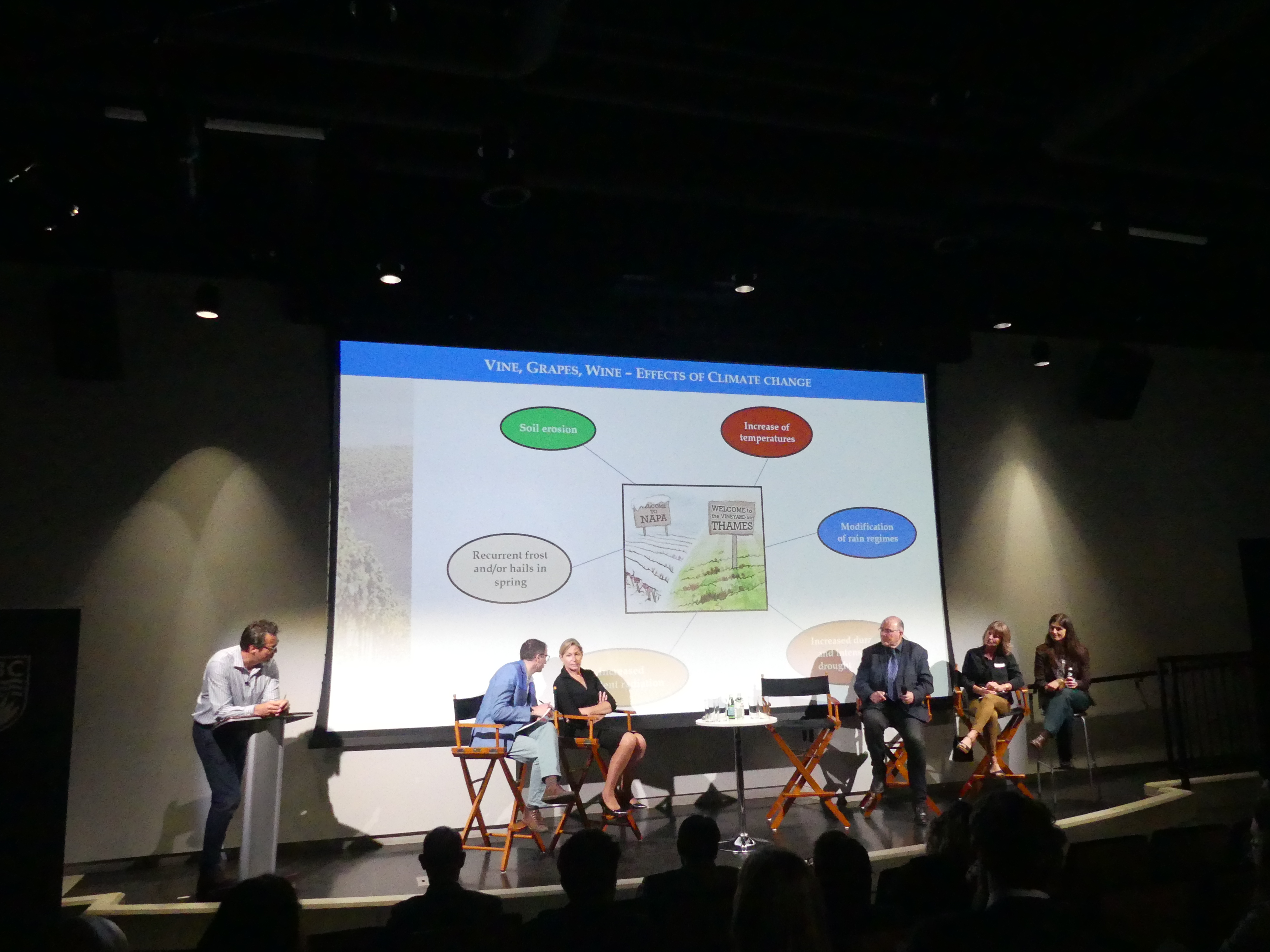
Impact of Climate Change on Vines and Wine

According to the latest reports of the Intergovernmental Panel on Climate Change (IPCC), the global temperature is expected to increase between 2°C and 5°C by 2050. This climate change has a direct effect on wine, vines and wine regions.
After the success of the French Ameri-Can Climate on Biodiversity (FACT-B) launched in 2019 as a continuation of the FACTS created in 2015, the French Embassies in the United States and Canada are pleased to carry on these conferences by focusing on the issue of the link between wine, grapevines and climate disruption.

This FACT-B Conference aims to raise awareness about environmental issues and strengthen exchanges between scientists, policy makers and the public on the impact of climate change on vines and wine.
Vancouver
Impact of Climate Change on Vines and Wine
Innovation Centre – Kelowna, BC
| May 24th, 2022 | 5h00 pm

Program
4:30pm: Doors open
5:00pm: Opening presentation by Anne Kang, Minister of Education of British Columbia; Nicolas Baudoin, Consul General of France in Vancouver and Rehan Sadiq, Provost and Academic Vice-President of the University of British Columbia Okanagan (UBC-O)
5:30pm: Panel discussion + Q&A
7:00pm: Refreshments and wine from France and Canada
7:45pm: End of the event
Panelists
Nikki Calloway, winemaker Canada
Nathalie Delattre, winemaker, local elected official, Senator
Pierre-Louis Teissedre, Professor at ISVV (University of Bordeaux)
Elizabeth Wolkovich, Associate Professor, UBC
Moderator
Jacques-Olivier Pesme, Director, UBC Wine Research Centre
The conference

Climate change has multiple consequences and direct effects on wine and vines: whereas some regions of the world could not produce wine due to their climate, they will soon be able to produce some, the alcohol and acidity content of wine may increase considerably, and harvest periods will change regularly, bringing the grape harvest forward by two or three weeks compared to the usual dates.
Measures have been implemented by the French wine industry, which presented its strategy for adapting to climate change in 2021, for which seven areas with 40 actions have been selected and for which it receives support from the State. Ms. Nathalie Delattre also mentioned the reform of crop insurance adopted by the parliament in 2022 and which concerns the tools for managing climate risks in agriculture. [1]
Thus, actions that enable and contribute to the preservation and adaptation of vines and wine to climate change are essential, such as the adaptation of production techniques to new environments, the collection of sufficiently accurate data to predict waves of climate change or the acceptance of new wine varieties and the maintenance of exchanges on scientific research in the different countries. The scientists concluded that a political and practical response is needed to the situation in taking these measures into account by including and using new technologies and modern techniques that help to reduce the consequences of climate change.
[1] She also emphasized the economic wealth that wine represents in France, as it is for example the first employer in Gironde (50,000 jobs) and represented 15 million euros of exports in 2021.
Organisers & Partners







